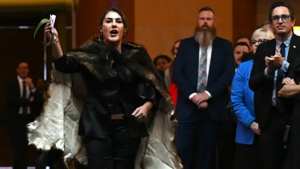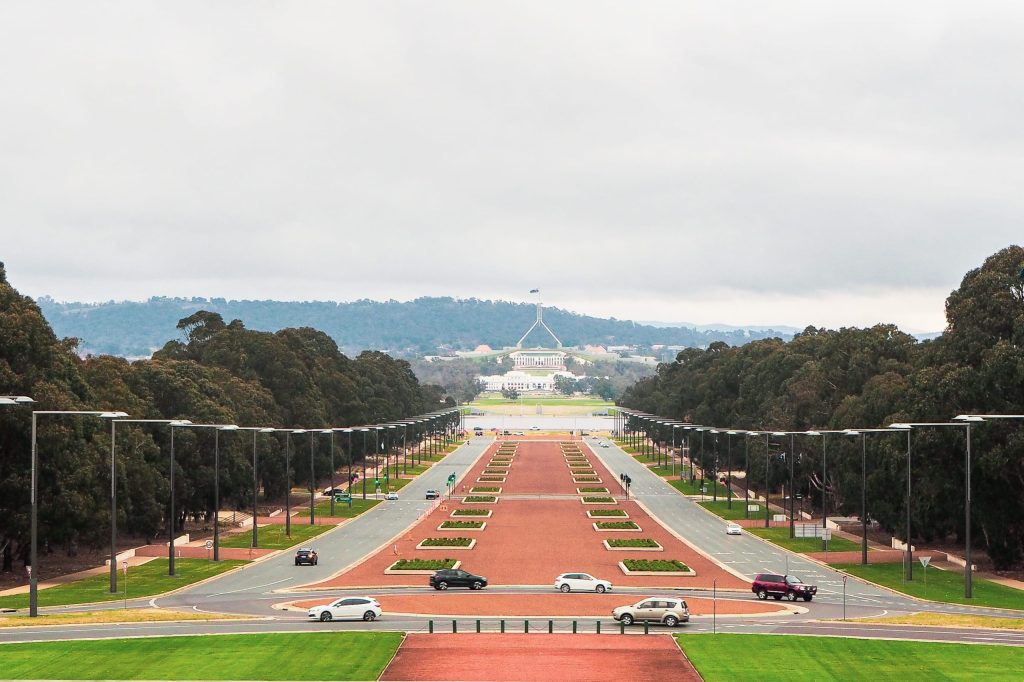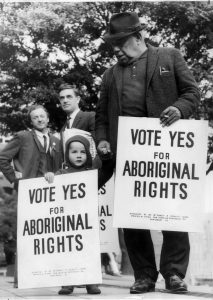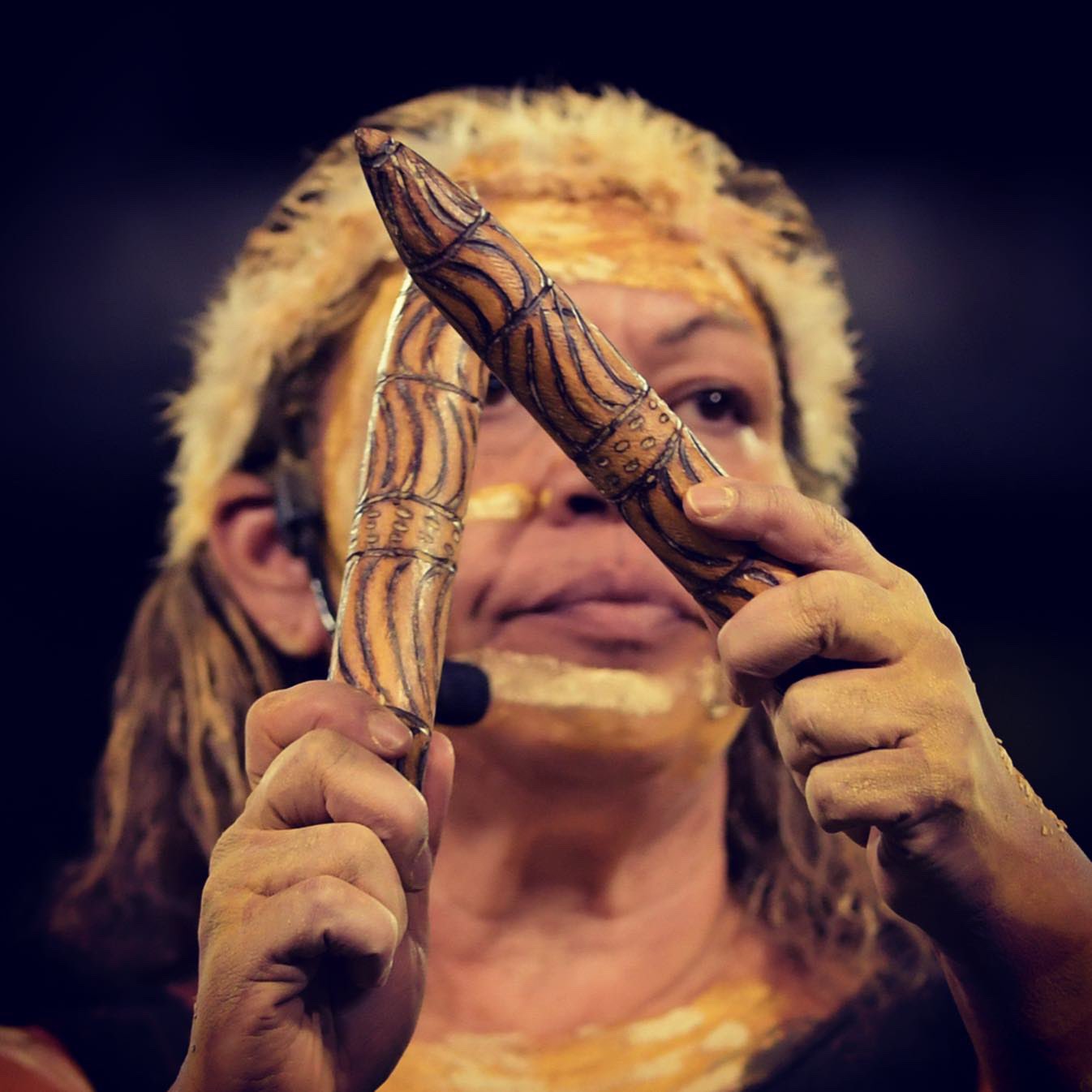Indigenous Senator Lidia Thorpe Confronts King Charles III in Australian Parliament
In a dramatic protest, Australian Senator Lidia Thorpe confronted King Charles III during his recent visit to Parliament House in Canberra. As the King addressed dignitaries and politicians, Thorpe’s passionate outburst demanded recognition of Indigenous rights and restitution for historical injustices. This incident highlights ongoing tensions surrounding colonial legacies and underscores the urgency of addressing Indigenous issues in Australia.

Thorpe’s Powerful Message
Thorpe, an outspoken advocate for Indigenous rights and a member of the Australian Senate, interrupted the King’s speech with fervent cries of “This is not your land!” and “You are not my king!” Her remarks resonated with many Australians who share her concerns about the impact of British colonization on Indigenous communities. Furthermore, her demands for a treaty and reparations emphasized that the British monarchy bears responsibility for historical atrocities committed against Aboriginal peoples.
The confrontation occurred as King Charles concluded his address, which included acknowledgments of Australia’s First Nations peoples. Despite his efforts to promote reconciliation, Thorpe’s protest served as a reminder that many Indigenous Australians feel their voices remain unheard. “Give us our land back! Return what you stole from us—our bones, our skulls, our babies,” she shouted, emphasizing the emotional scars left by colonization.

The Impact of Her Actions
As security personnel moved in to escort her from the chamber, Thorpe continued her protest, declaring, “You destroyed our land!” Her passionate stance reflects a broader movement among Indigenous activists who call for systemic changes to address historical wrongs. Many praised her courage; however, others criticized her approach as disruptive.
Thorpe’s protest is part of a long history of activism aimed at securing rights for Indigenous Australians. Born into a family involved in Aboriginal community organizing, she has consistently advocated for a treaty that recognizes the sovereignty of First Nations peoples. This demand is particularly poignant given that Australia remains one of the few Commonwealth nations without a formal treaty with its Indigenous population.

Constitutional Discussions Intensify
The senator’s confrontation with King Charles comes at a time when discussions about Australia’s constitutional future are intensifying. Prime Minister Anthony Albanese and other leaders have expressed support for recognizing Indigenous voices within the government framework; however, Thorpe has been critical of these proposals. She argues that any move towards a republic must prioritize treaty negotiations first.
In previous statements, Thorpe articulated her belief that the British crown does not hold legitimate sovereignty over Australian lands. “The crown invaded this country and has not sought treaty with First Peoples,” she stated emphatically. This sentiment encapsulates frustrations felt by many who view royal visits as symbolic reminders of colonial oppression rather than gestures of goodwill.

A Ceremonial Welcome Amidst Protests
The King’s visit was marked by both ceremonial welcomes and protests. Aunty Serena Williams from the Ngunnawal people performed a traditional “Welcome to Country.” However, many Indigenous leaders felt that an apology from the monarchy was necessary to acknowledge past wrongs. Williams expressed hope for reconciliation but emphasized that true healing requires accountability from those in power.
As video footage of Thorpe’s outburst circulated on social media, it sparked discussions about public protests in democratic societies. Supporters hailed her as a voice for the voiceless, while detractors labeled her actions as “political exhibitionism.” Regardless of perspective, it is clear that Thorpe’s actions reignited conversations about colonial history and its lasting impact on contemporary Australia.
The Path Forward
The significance of this moment extends beyond parliamentary walls; it reflects growing recognition among Australians regarding the need for meaningful dialogue about reconciliation. As public awareness increases, so does pressure on political leaders to take concrete steps towards justice for Indigenous peoples.
In conclusion, Lidia Thorpe’s bold confrontation with King Charles III serves as a powerful reminder of the ongoing struggle for recognition and rights among Indigenous Australians. Her passionate plea for justice resonates with many who seek to address historical injustices and advocate for a future where all Australians can coexist with respect and dignity. As Australia grapples with its colonial past, voices like Thorpe’s will undoubtedly play a crucial role in shaping its future.

